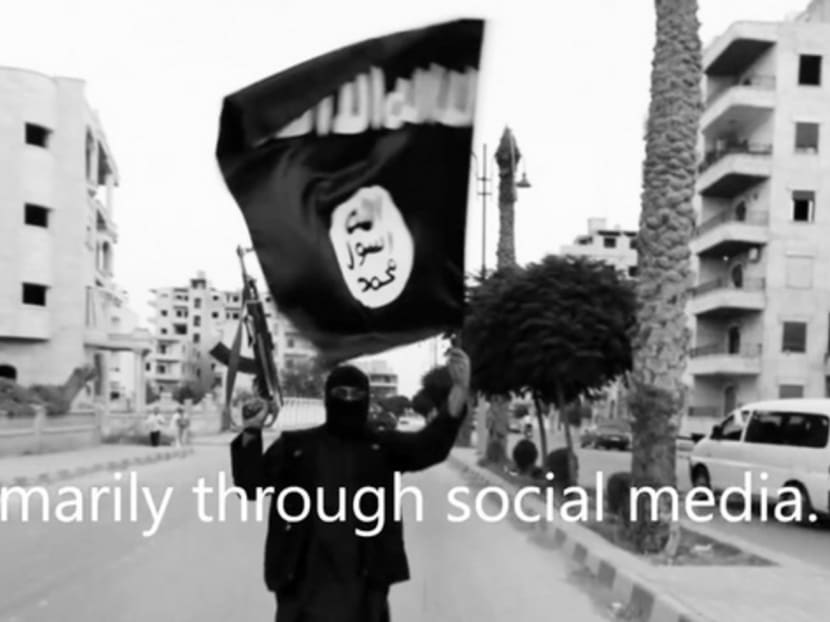The deadly draw of the IS brand without borders
Abu Bakr Baghdadi had probably never heard of Omar Mateen, the Orlando shooter who massacred 49 people at a gay nightclub, before news of Mateen’s murderous rampage broke early last Sunday morning.

A deranged person who wants attention has only to express loyalty to the Islamic State to appear important. Photo: Reuters
Abu Bakr Baghdadi had probably never heard of Omar Mateen, the Orlando shooter who massacred 49 people at a gay nightclub, before news of Mateen’s murderous rampage broke early last Sunday morning.
But sure enough, soon after the assault, the Islamic State (IS) leader’s propaganda outlets were celebrating Mateen as a “fighter” and a “soldier” of the caliphate that IS claims to be building in Syria and Iraq. It is not clear that Mateen himself was a believer in the caliphate, even if he had called 911 during the attack and pledged allegiance to IS.
The profile emerging is that of an unstable young man who might have been conflicted about his sexuality and his politics. He had in the past expressed support for the other Sunni terrorist group, Al Qaeda, but also for the Shia Hizbollah, the Lebanese organisation. A true Sunni extremist would rail against Hizbollah.
In the world of global terrorism today, the IS brand is the most potent. A deranged person who wants attention has only to express loyalty to IS to appear important. That is the way IS wants it as it capitalises on its brand to prolong its existence after its Middle East project is defeated. Given that its brutality is legendary, anyone claiming an association with it is bound to raise alarm — and gain instant notoriety.
Whatever his real allegiances, if he had any, Mateen, in death, has become a martyr for extremists. And in waging his massacre, he has benefited IS at a time when it desperately needs it.
Two years after sweeping through northern Iraq and capturing the city of Mosul in 2014, the jihadis are on the defensive. IS has lost more than 45 per cent of the Iraqi territory; its hold over Mosul is vulnerable. In Syria too, IS is fighting on several fronts — against the regime in Damascus, supported by Iran and Russia, and against the rebels, backed by the United States and Arab states. All these anti-IS forces have been racing to retake the group’s main base in the city of Raqqa.
The allure of IS has also lost momentum as evidenced by the stalling flow of foreign fighters. There are more reports today of Western jihadis struggling to get out of IS-held territory than stories of people wanting to join.
That’s why IS’ strategy has shifted.
Late last month, its spokesman Abu Muhammad Adnani issued a chilling recorded message in which he appealed to loyalists to stay where they are. “The smallest action you do in the heart of their land is better and more enduring to us than what you would if you were with us,” he said.
Did Mateen listen to that recording? We may never know. But by invoking IS in his killing spree, he joins the ranks of a new wave of homegrown jihadis whose motives are confounding intelligence and law enforcement agencies. Officials in the US and Europe have been struggling to paint a reliable portrait of the young people who are susceptible to the IS brand and likely to act without being directed by the organisation.
Mateen had been scrutinised by the Federal Bureau of Investigation and had been in contact with another Florida man who blew himself up in Syria, and yet he was ultimately judged not to be a threat. Many others attracted to the IS brand, however, never appear on the radar of security agencies; they are radicalised on the Internet in a period of months.
In France, where a 25-year-old who had been convicted of ties to Al Qaeda killed a police officer and his wife in Paris on Tuesday — and live streamed the murders on Facebook — a debate has been raging over the motivation of killers.
One expert on Islamism, Mr Olivier Roy, has caused a storm by arguing that the new wave of jihadis represents the “Islamisation of radicalism”. He says today’s violent extremism is a nihilistic revolt by second-generation immigrants who have taken up the Islamist label opportunistically.
Mr Roy’s arguments have drawn criticism, most stridently from Mr Gilles Kepel, another leading expert on Islamism. In a public dispute in the French media, Mr Kepel has accused Mr Roy of playing down the religious dimension of terrorism.
Mateen’s complex profile could add yet more confusion to the debate. Was the Orlando shooter motivated more by self-loathing than religious ideology? Either way, by invoking IS, he has allowed the terrorist group to benefit from his horrific crime. FINANCIAL TIMES
ABOUT THE AUTHOR:
Roula Khalaf is deputy editor of the Financial Times, where she was previously foreign editor.






